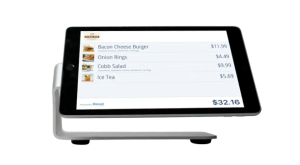Top 15 Reasons Restaurants Fail
Having a passion to create amazing meals and experiences for diners is a noble reason to start a restaurant, but it takes more than pure desire to keep a restaurant open. 70% of restaurants close between their third and fifth years. What are the reasons for so many failed attempts? Below, is a list of 15 common reasons why restaurants fail. Think of this as the “Do Not Do” list for running a restaurant.
1. The Owner Is Inexperienced
Even the most well-meaning owner can make huge mistakes because of a lack of experience. Potential restaurateurs might not realize or appreciate the specific set of demands that come along with owning and running a restaurant. Once realized, it can be too late. Owning a restaurant isn’t for everyone.
In the early months of opening a restaurant, an owner can be found doing anything from cleaning toilets to prepping food. It’s because of this type of dedication that many restaurants stay open at all. But an inexperienced owner might also start to become too focused on the small picture, which can ruin a restaurant’s chances of staying open.
The experienced owner knows how to eventually delegate day-to-day tasks, to focus instead on managing operations at large. Having a well-rounded view of running a restaurant can take years, though, so the best thing an inexperienced owner can do is ask questions. Find the experts, and pick their brains. Get information on all aspects of running a restaurant, from sourcing ingredients to taking inventory to planning a menu.
2. The Owner Doesn’t Actually Work
What’s worse than an inexperienced owner? A lazy owner.
It seems counterintuitive that anyone would work very hard to open a restaurant, only to step back and take a break once the doors open. But it does happen. Some new owners make the mistake of thinking that running a restaurant happens by itself. Or worse, they think that everything will be a breeze after the grand opening. Not showing up for work, whether physically or mentally, is the same as burning your restaurant down
3. Inadequate Accounting and Inventory Systems
Too many restaurateurs fail to educate themselves on the basics of restaurant accounting management. Your restaurant needs:
- Enough cashflow to pay staff and bills
- Profits generated by the right balance of food costs and selling prices
- The right number of employees—neither too few nor too many
The best thing a new owner can do is invest in a POS system that does the majority of the accounting for them. With the reports generated by their point of sale, they can keep track of the most important numbers, like profits and losses.
4. Not Creating a Checks-and-Balances System
Don’t keep all the tasks and responsibilities organized in your head. Write them down, and create a system. Staff members will understand what’s expected of them, and they’ll feel accountable for their responsibilities. A system of checks and balances maintains a smooth-running restaurant and helps to prevent theft.
In fact, you’re encouraged to have systems for all areas, from serving to cleaning. This makes training new hires easier and helps your team stay on track.
5. Overspends Before Opening
This mistake is all too common. When opening a new restaurant, the urge to hire an expensive interior designer or buy the best (read: priciest) kitchen equipment can outweigh common sense. These costs that seem important are not, and they’ll most likely eat into your “cushion budget.”
Your financial cushion is cash that covers any bills and salaries during the first three months of business. Most restaurants don’t start making money right away, and they rely on this money to stay afloat. If you go into debt during your first three months, you might have a difficult time getting out of it.
6. Bad Managerial Skills
It takes a special type of manager to run a restaurant flawlessly. The best have worked their way up from the bottom. Not to say that a newcomer to the dining industry can’t run a seamless operation, but it’s rarer. That’s because there are dozens of moving parts in a restaurant that require firsthand knowledge and understanding—and dozens of personality types to work with.
A bad manager can ruin your restaurant’s chances of growing. He or she is responsible for training the staff, ensuring that all duties are carried out properly, and confirming that all customers are happy. Look for managers who are compassionate and understanding, and who know how to motivate staff to reach their peak performance during every shift.
7. Inconsistent Customer Service
It’s never been more important to have consistent customer service. Customers are pickier than ever, and the dining options are seemingly endless. Restaurants make a terrible mistake when they don’t invest time in training the front of house.
How a host greets your guests can determine whether or not they come back again. Servers also need to be trained in the art of communication—particularly with difficult customers. One prompted-by-bad-service Yelp review can repel potential customers, even with a dozen good reviews before and after it. Offering consistently good customer service is an essential part of surviving the first years of being open.
8. The Food Is Bad
It might seem inconceivable, but some owners don’t know how their food tastes. If you serve bad food, then no amount of good service or solid management will keep your restaurant open. Taste your food regularly, and hand out surveys to get honest feedback from customers. Your food needs to taste good every time, to guarantee that you don’t lose customers.
9. Sloppy Preparation and Execution
Your regular food tastings also provide the opportunity to check that recipes are being followed correctly. Bad food execution tends to happen if there is a breakdown in the chain of command. Food preparation can become monotonous and seemingly robotic; maintaining quality control requires vigilance every day. When corners start getting cut, it won’t take long for customers to notice.
10. Poor Hiring Decisions
For your restaurant to succeed, you must build a strong team around you. No job is too small that it can be given to someone unfit to perform it. You want to fill every position with a strong candidate who will support your restaurant’s identity, and your vision.
Hiring the wrong people, particularly in management positions, could be fatal to your company. If you make the wrong hiring decision, the best thing you can do is let that person go. Avoid spending money on employees who are not helping you achieve your goals for the restaurant.
11. The Owner Doesn’t Pay Taxes
This is pretty straightforward: If you don’t pay your state or federal restaurant taxes, you will be served hefty fines by the IRS later. Depending on what is owed, the fee might put you into bankruptcy. And worst case, your state or local government will shut you down permanently.
12. No Marketing
At no point in history have there ever been so many restaurants. Differentiating your establishment from competitors isn’t just obvious—it’s a matter of survival! Restaurants that don’t advertise either online or in print are going to be beaten down by chain restaurants in their neighborhood.
The good news is that you don’t need a million-dollar marketing budget to get new customers.
13. Bad Location
“Bad location” can mean many things for a restaurant, including:
- The neighborhood clientele isn’t interested in your style.
- There is no through traffic.
- Your neighbor serves the same menu as you, but cheaper.
- You are not visible from the street.
- There’s limited parking.
Choosing a bad restaurant location is unfortunate, because there’s not much that can be done after opening. Investing in a strong marketing campaign is the best tactic in this case.
If you’re in the early stages of scouting for restaurant locations, take your time. Choose a spot with high visibility and plenty of foot or car traffic. It’s also a smart idea to spend time in the neighborhood, to gain an understanding of the types of customers who would be dropping by. Get to know what your competitors are serving (and at what price point).
14. No Culture
While all restaurants share basic similarities, every restaurant has its own culture. What’s yours? Not taking the time to create your company culture will backfire in the future. A restaurant culture builds consistency at every level—from the way a napkin is folded to how a guest is spoken to. Even hiring decisions are influenced by company culture. If your restaurant doesn’t have a cohesive identity to separate it from the competition, it could fade into the dining landscape and be forgotten.
15. No Passion
It takes dedication and sacrifice to keep a restaurant open. Without passion, your restaurant will never survive.
This post is adapted from an original post from posted in April 2017 | BY Emma Alois at Lavu.com. View the original article here.
Moving Forward with Motus
If you aren’t a customer already, it’s a pretty simple process to get started with us. It’s not an exaggeration to say that most of our clients wish they had made the change years ago, but were reluctant because they thought the process was difficult. We have a streamlined process and will guide you through every step. Check out our current POS solutions.
Our motto is “Moving Forward” and it is our desire to help your business positively grow in many ways. Get started today by calling us at 608-819-8666 or visit us online anytime at www.MotusCC.com.




 Our POS systems are designed to streamline in-store transactions. With features like inventory management, sales reporting, and customer tracking, our POS solutions help you run your business more efficiently. Our terminals are compatible with various payment methods, including chip cards, contactless payments, and mobile wallets.
Our POS systems are designed to streamline in-store transactions. With features like inventory management, sales reporting, and customer tracking, our POS solutions help you run your business more efficiently. Our terminals are compatible with various payment methods, including chip cards, contactless payments, and mobile wallets.



